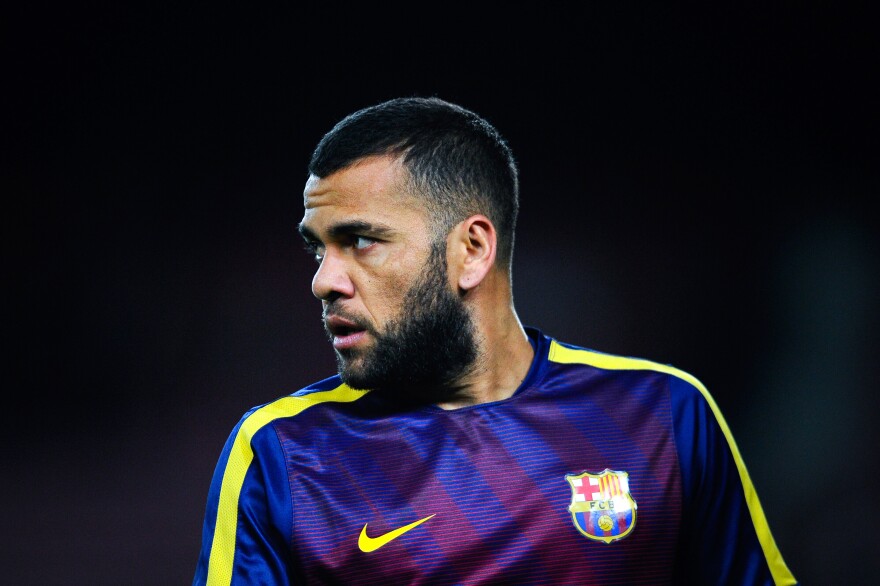FIFA president Sepp Blatter says he's concerned about the findings of a recent study regarding racism in Russia, which will host the 2018 World Cup.
The report, by the Fare network and SOVA Center, found more than 200 incidents of discrimination in Russian soccer between 2012 and 2014. The Fare network is an organization dedicated to combating racism in European soccer. The SOVA Center, based in Moscow, does research on nationalism and racism.
This is not the first time Blatter has addressed racism in Russian soccer. In 2014, he asked President Vladimir Putin to tackle the problem.
The Globe And Mail quotes Blatter speaking earlier today to the presidents of South American football confederations and other officials in Paraguay. "We must deduct points, relegate a team [to a lesser division]," he said. "The moment we have the courage to do that discrimination will end."
Incidents of racism are not limited to Russia. In Spain, fans often yell macaco, or "monkey," to black players. Last year, NPR's Gene Demby wrote about the infamous banana incident during a match between FC Barcelona and VIllareal CF in Spain. Brazilian player Dani Alves was setting up to take a corner kick, when a fan launched a banana at him. Alves took a bite, afterwards joking on Twitter that he was grateful for the extra potassium. The man who threw the banana, a 26-year-old youth soccer coach, was banned for life from Villarreal's stadium, and the Villarreal team was fined 12,000 euros by the Spanish soccer federation.
In an interview, Alves addressed the incident. "To me, sadly, the fight against racism is a lost cause and until more drastic measures are taken it will continue to exist" he said. "I have been in Spain for 10 years and since the first year these things have happened."
Alves adds, "You have to look at how the issue is dealt with in other places, for example, in England. It rarely happens there and when it does, the punishment is severe."
NPR's Gene Demby recently interviewed Laurent Dubois, a Duke University historian who wrote Soccer Empire: The World Cup and the Future of France. He told Gene that racism in European soccer was at levels unheard of in U.S. sports, and that it was fueled by deep-seated anxieties about immigration to Europe. In other words, major sports in the U.S. do not involve large numbers of immigrants, certainly not like European soccer does. Dubois also said that while players and managers can be easily sanctioned, fans are harder to monitor.
That became clear during the 2014 World Cup, which was marred by racist incidents, including offensive chants at games involving Russia and Croatia, and German fans showing up at a game against Ghana wearing blackface.
Just last month, NPR reported that British soccer team Chelsea banned three fans over a racist incident on the Paris Metro, caught on video. NPR listener Blythe Rodgers is a black Chelsea fan. Rogers also expressed doubts about how much FIFA can actually achieve, but suppored "stripping season tickets from the fools on the Paris Metro and banning them from games. Repeat offenders should be subject to the travel sanctions of old in which they were put right back on the train/plane."
But other NPR soccer fans where more skeptical. Listener Rick Spies wrote, "They're threatening Russia and not Qatar? The mind boggles." Spies was referring to allegations that hundreds of immigrant employees died on construction projects for the Qatar 2022 World Cup.
Copyright 2021 NPR. To see more, visit https://www.npr.org.





